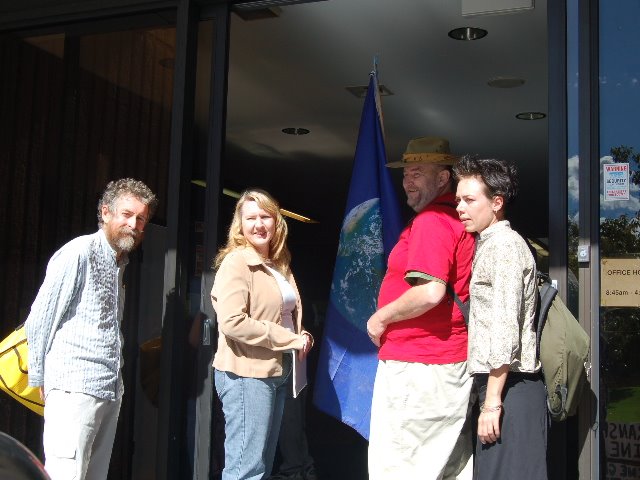It’s an interesting notion reasonableness. It is also a deeply embedded legal principle based on the notion of what the ordinary person would do in various circumstances.
In the last few days of court, the question of reasonableness has been central.
The defence is based in part on whether the four had a reasonable belief that their action would have some effect on the operations of Pine Gap. This is based on their belief that Pine Gap is instrumental in the war in Iraq, a belief that is shared by many.
Some interesting quotes:
“Engaging in activities to disrupt the implementation of public policy can never be reasonable” Mr Maurice, Commonwealth lawyer.
In response to the Commonwealth lawyer was trying to say there were many ways for citizens to express their political views within the law, citing writing letters and joining political parties -
“If writing a letter to the editor was the only reasonable way to respond to the dead and battered bodies of Iraqi children, then we have all failed” Donna Mulhearn, Defendant.
In response to the assertion that the actions would not effect the so called emergency in Iraq - “…our actions did disrupt that war machine for five hours and that seems to be a reasonable response to an emergency”. Adele Goldie, Defendant.
The Barrister for the Commonwealth has attempted to keep all discussions about reasonableness away from the jury. He argued that the jury should not be determining the reasonableness of the four’s actions. However today the Judge ruled against this submission.
What is reasonable for the public to know about Pine Gap? What was reasonable for the Australia Government to do in the face of the US led invasion of Iraq? What are reasonable actions for citizens in response to this war? At what point are laws so unjust that the only reasonable response is to break them?
Sunday, June 3, 2007
Subscribe to:
Post Comments (Atom)

No comments:
Post a Comment